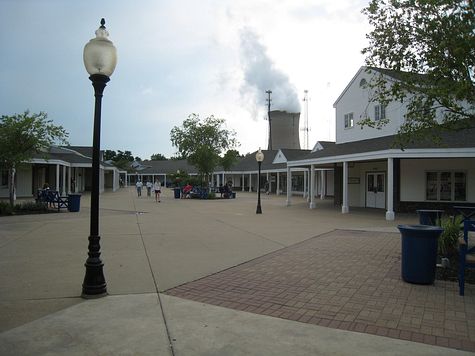
Although the cyclone tower elicits visions of nuclear power, the Michigan City Generating Station is coal-powered. The three of us split up so that we each had time to visit two or three stores, and then we were back on the road.
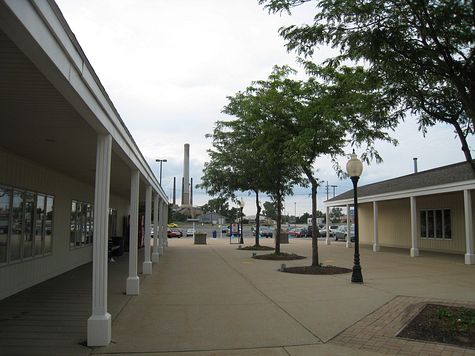
There were traffic diversions so we didn’t immediately find our way back onto the Indiana Toll Road. We wanted to get the most amount of mileage before the sun set, and Allenna and Adam were indecisive about what to do for dinner. As I drove was driving northbound through Chicago on the Dan Ryan Expressway, I saw a sign for Koreatown on Lawrence Avenue. I immediately headed for the exit, driving east. It’s been years since I’ve been in the neighbourhood. It’s not just Korean, it’s multi-ethnic, and there were lots of interesting choices for restaurants.
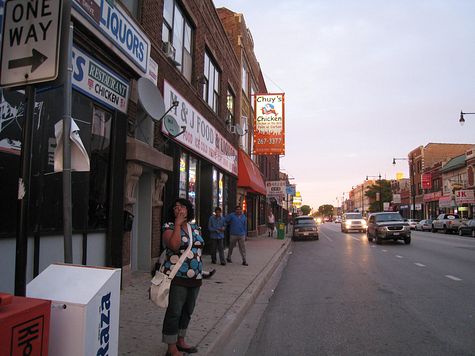
We decided to stay on the Korean theme, and picked Chicago Kalbi Restaurant. The booths on both sides of the restaurant have grills and vents, and were full.
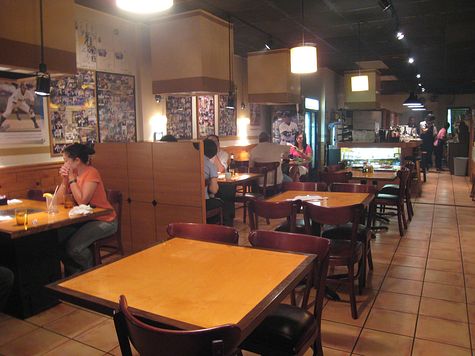
Since we had been snacking in the car, we elected to not have the beef. Adam ordered a casserole that came in a stone bowl, as he ordered frequently in Beijing. Allenna and I had japchae — the cellophane noodles. As customary, Korean meals come with banchan — a variety of side dishes.
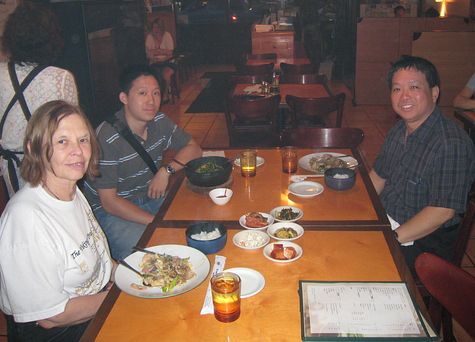
By the time we had finished dinner, it was dark outside. We set out back on the road.
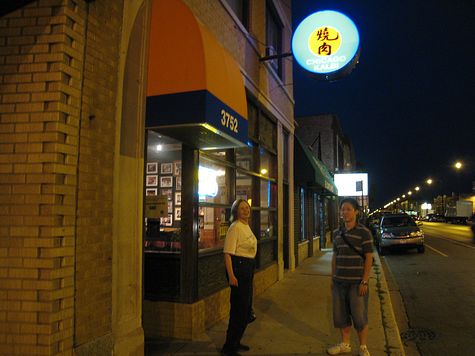
Traffic was moderate on the drive through the north Chicago suburbs. The last few hours into Wisconsin felt like a long time. We arrived, as expected, in about 13 hours. We were tired from the journey, but changing from Eastern Time to Central Time meant that the arrival seemed somewhat reasonable on the clock.



